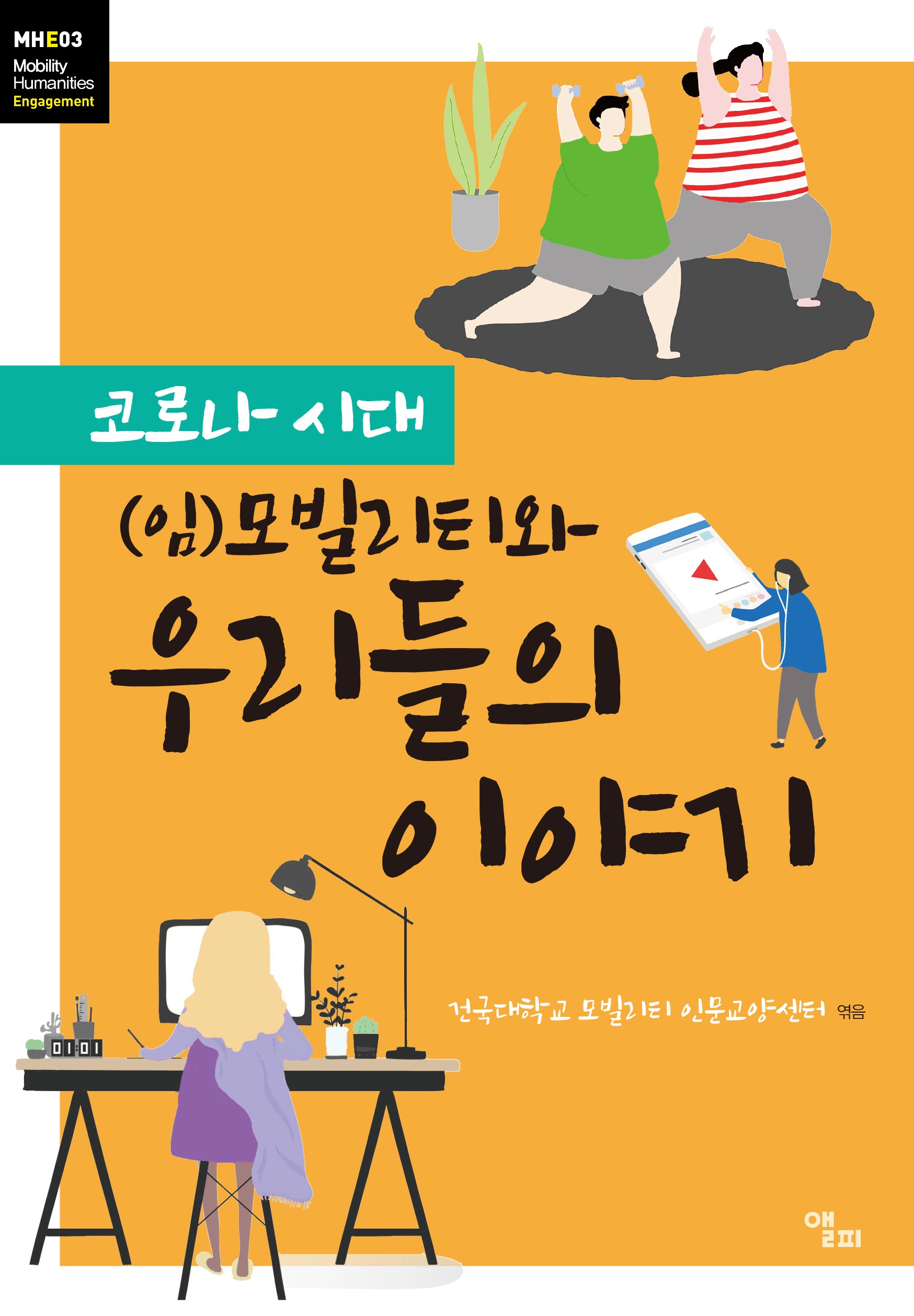Not Meta-discourses, but the Stories of “Individuals”
This book is the final result of the essay contest organized by the HK+ Mobility Humanities Education Center at Konkuk University. The contest was designed to unearth stories of individuals continuing their daily lives amid the coronavirus crisis. The book consists of essays written by 51 participants who are middle/high school students, college students, housewives, or office workers. The year 2020 has witnessed the outbreak of the Covid-19 pandemic, which no one had predicted. The pandemic crisis has disrupted the whole world; and it is not just a matter of quarantine management, but is affecting our lives by transforming every area of society, including politics, economy, diplomacy, education, and culture. The pandemic brought about continuous policy-making processes to determine the nation’s future; however, it also results in creation of the discourses on normal and abnormal routines in people’s everyday life related to the corona crisis. We should pay attention to people’s voices that record the developments in the current times, because it is the general public that reflect on the current situations and make suggestions for the future.
Limited Mobility Leading to Uncovering of Places
The Covid-19 crisis imposing immobility on people amplifies extreme anxiety. The experience of limited mobility leads to unconscious fear. The older generations that have gone through the era of presidential martial laws or curfews nationwide may feel vague anxiety. On the other hand, younger generations who have grown up enjoying unlimited freedom of mobility may feel desperate, worrying that this first experience of restriction will continue from now on into future. As a matter of fact, limitation on mobility transforms placeness. People need to find new ways of convening for club meetings, theatre performances, or K-POP performance and look for new platforms for communication. Writers vividly unravel the process of discovering the self and building a new place as a result of facing these unusual cases as follows: the place where they used to be is becoming a strange place, they have to stay in a place other than the place where they should be, and the familiar home has become a strange place as they stay at home instead of staying at school or at work.
Leading the New Normal Life, Finding a New Way
Citizens who look back on themselves in the corona era sympathize with the difficulties that the vulnerable suffer from during this times of immobility; they seek directions and answers for the current situation in light of historical cases of the plague and the Spanish flu. They reconsider the ethical responsibility of the corona period where racial discrimination and nationalism prevails. Some, having experienced immobility abroad realize the boundaries between countries, and think about the world and how it will change after the end of the coronavirus. It seems that the collective intelligence of the citizens has already ushered in a new era and is preparing for the future so that it can never fall behind the predictions of any futurist.


